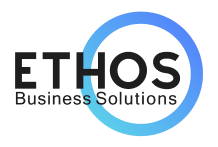Selecting an ERP system is one of the most important decisions a business can make. The right ERP empowers growth, while the wrong one can slow you down, drain budgets, and frustrate teams. Two of the most popular options are NetSuite and Odoo. Both are powerful, but they serve very different needs.
At Ethos Business Solutions, we consult on both platforms. Here’s how they compare — and how you can decide which is best for your organization.
NetSuite at a Glance
NetSuite, owned by Oracle, is a cloud-based ERP designed for small and mid-sized companies but scalable to global enterprises. It offers an extensive suite of enterprise-grade applications with strong compliance and multi-subsidiary capabilities
Strengths:- Comprehensive suite covering finance, CRM, HR, supply chain, and more
- Built for scalability and global operations
- Enterprise-level compliance, auditability, and security
- Proven track record across industries worldwide
Limitations:
- Higher cost compared to alternatives
- Longer implementation timeline
- Can be complex and resource-intensive for smaller firms
Odoo at a Glance
Odoo is an open-source ERP with 40+ integrated apps covering everything from CRM and accounting to eCommerce and manufacturing. Its modular design and transparent pricing make it especially attractive for SMBs and mid-market companies.
Strengths:
- Affordable subscription pricing; free Community edition available
- Modular design (choose apps as you grow)
- Highly customizable and open-source
- Large developer community and marketplace
Limitations:
- Requires customization for complex needs
- May lack out-of-the-box depth of enterprise ERPs
Support depends on edition: strong in Enterprise, community-driven otherwise
Direct Comparison
| Feature | NetSuite | Odoo |
| Best For | Mid-market to large, global businesses | Startups and SMBs to mid-market, growing companies |
| Cost | Enterprise-level pricing, negotiable | Transparent, lower-cost subscription |
| Flexibility | Strong configuration & extensions, but heavy customizations can add cost/complexity | Highly flexible, open-source, modular, deeply customizable |
| Implementation | 12–32 weeks, requires experienced consultants | Faster for smaller rollouts; larger projects still need planning |
Which Should You Choose?
The answer depends on your business size, budget, and complexity.
- Choose NetSuite if:
- You’re a mid-market to enterprise or a fast-scaling global company
- Compliance, security, and enterprise-grade features are critical
- You want a robust, all-in-one system with deep functionality across finance, supply chain, and multi-subsidiary/global operations
- Choose Odoo if:
- You’re a small startup to mid sized business (or even a micro-business) looking for a cost-effective ERP with modular flexibility
- You want flexibility to add modules over time under Odoo’s single subscription model, avoiding the need for separate module licensing
- You value customization and open-source adaptability
The Ethos Role
At Ethos, we’ve seen both systems deliver incredible results when matched to the right company. That’s why we now offer both NetSuite and Odoo consulting — ensuring you don’t have to choose blindly.
We help evaluate your needs, budget, and growth plans, then guide you toward the ERP that will best enable your success.
Conclusion / CTA:
ERP selection is a strategic decision. Don’t make it alone.
👉 [Contact Ethos] today for an unbiased assessment of whether Odoo or NetSuite is the right fit for your business.





